From persistent allegations of corruption to worries about gay rights and terrorism, Russian President Vladimir Putin has had few opportunities to present the Winter Olympics as he intended: a triumphant moment that has put Russia back on the map.
With less than three weeks to go to the start of the Sochi Games, Putin gathered international television networks to a cosy mountain studio to put across the narrative of Sochi 2014 as a gay-friendly event in which every dollar has been accounted for and sport will be the winner.
The questioning from journalists, including the BBC’s Andrew Marr and George Stephanopoulos — who was a spokesman for former US president Bill Clinton and is now at US TV channel ABC — was gentle enough, while Putin’s message was strident, but not entirely convincing.
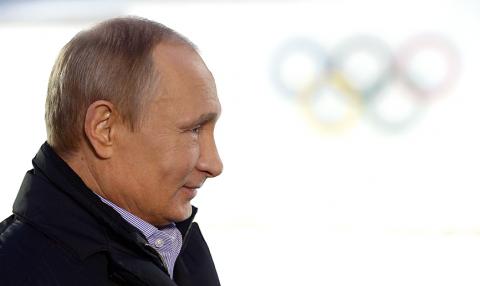
Photo: AFP
On corruption, he insisted that there had been no systemic graft during the preparations for the Games and said all allegations to the contrary were not backed up by facts.
“I do not see serious corruption instances for the moment, but there is a problem with overestimation of construction volumes,” Putin said.
He added that some contractors had won tenders due to low bids which they subsequently inflated.
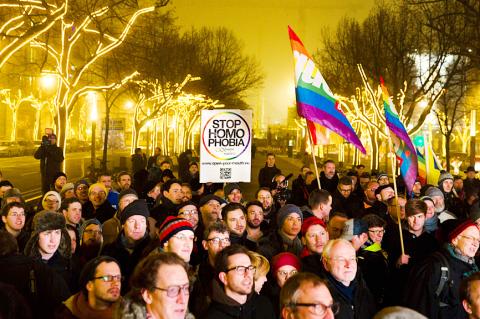
Photo: Reuters
“This price increase, it is sometimes due to contractor’s deliberate acts and sometimes it is due to the fact that the professional valuation of necessary investments, especially in mountain conditions, for a mountain cluster, are not efficient enough,” Putin added.
The official figure for spending on Sochi had previously been put at about US$51 billion, four times more than planned, and exceeding that of the London and Beijing summer Olympics. One report put the corruption estimate at US$30 billion, a figure greater than the GDP of more than half the world’s countries.
International Olympic Committee member Gian Franco Kasper has said that as much as one-third of the US$51 billion price tag — the largest in the history of the Olympics — has been siphoned off. One road alone cost about £6 billion (US$9.87 billion), which is more than the entire cost of the previous Winter Olympics in Vancouver.
Yet Putin told the journalists that the real cost of the Sochi Olympics was just 214 billion rubles (US$6.34 billion) and that all other spending involved necessary improvements to transport infrastructure, as well as creating Russia’s first modern holiday resort. He said that Kasper’s words had been taken out of context, adding that no one had proof of corruption.
“If anyone has such information, give it to us, please. I repeat once again, we will be grateful, but so far there was nothing but talks,” he said.
The Olympics are a pet project for Putin, who has a residence in Sochi and has personally overseen preparations since Russia won the right to host the Games.
He admitted that he thought the Olympics were important as part of his project to boost national pride, saying: “There is also a certain psychological aspect here and we can talk about it directly, without any embarrassment or pretense. After the collapse of the Soviet Union, after the dark and — let us be honest, bloody events in the Caucasus — the public attitude in Russia became very negative and pessimistic. We have to pull ourselves together and realize that we can deliver large-scale projects on time and with high standards.”
On gay rights, he was equally firm. Russia’s new law banning homosexual propaganda is not discriminatory and “only” about restricting the “propaganda of pedophilia and homosexuality” among children.
He said the law was designed “to protect children and future demographic development” and that if gay people were successful, he wished them all the best.
“When they [gay people] achieve great results, such as for instance, Elton Johnachieves, who is an extraordinary person, a distinguished musician, millions of our people sincerely love him with no regard to his sexual orientation,” the Russian president said.
Putin took only a few questions one-on-one from the foreign journalists, preferring a round-table format for the main interview that provided little chance for follow-up questions or real probing. The BBC was joined by other international channels and two reporters from Russian state television, who asked soft-ball questions and even complained when foreign journalists raised the gay rights issue.
A Chinese TV reporter told Putin he was very popular in China and suggested he should consider playing “tough guys” in action movies when he retires. Putin said that was unlikely, but that he would probably still play ice hockey.
When asked to tell the secret to his good health, the Russian president had a few tips: “How to control one’s weight? Don’t overeat. How to stay in shape? Do sports. There are no magic pills here. I do a bit of sports every day.”
“Yesterday, I skied here until 1:30am, this morning I exercised in the gym and I swim 1000 meters almost every day. That’s nothing special, but I do it regularly,” he added.
When Marr got Putin one-on-one, he again raised the gay issue.
Yet Putin insisted he had no personal problem with homosexuals: “If you want to know what I personally think about this, a person’s sexual orientation actually does not make any difference to me. I know a few of them and I am on friendly terms with some of them.”
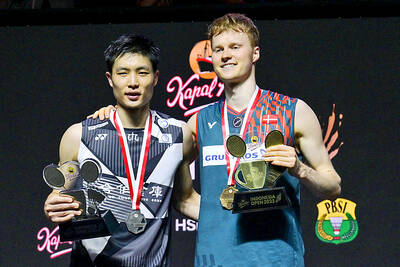
Badminton world No. 3 Anders Antonsen clinched his first Indonesia Open title yesterday after beating Taiwan’s Chou Tien-chen, while South Korea’s An Se-young won her second championship in Jakarta. The 28-year-old Dane sank world No. 7 Chou at the Indonesian capital’s Istora Senayan arena, winning 22-20, 21-14 in a 60-minute match to secure the prestigious Super 1000 event. Antonsen came out on top in a tightly contested first game before cruising to victory in the second. In a more closely fought women’s singles final, South Korean ace and world No. 1 An fought back from one game down to beat China’s
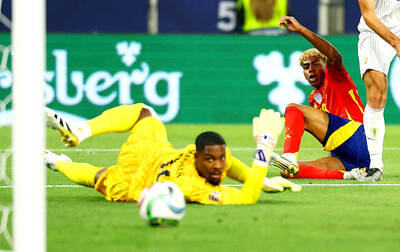
Spain starlets Lamine Yamal and Nico Williams dazzled on Thursday as La Roja beat France 5-4 in a thriller in Stuttgart, Germany, to set up a UEFA Nations League final with Portugal. Yamal bagged a brace, while Williams scored and provided an assist as the two wingers cut France’s makeshift defense to ribbons. Mikel Merino and Pedri were also on the score sheet for the UEFA Euro 2024 champions. Kylian Mbappe netted a second-half penalty, but Spain were 5-1 up and cruising, before Les Bleus suddenly woke up as their opponents took their foot off the pedal. France’s three late goals — a
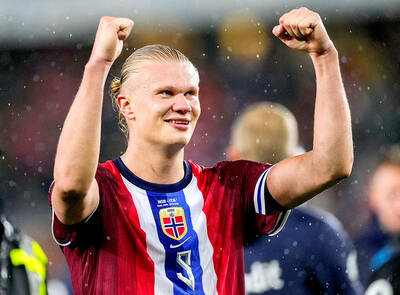
Italy crashed to a 3-0 loss away to Norway, as the four-time FIFA World Cup champions made a disastrous start to their 2026 World Cup qualifying campaign on Friday, while Belgium had to settle for a draw in North Macedonia. Alexander Sorloth, Antonio Nusa and Erling Haaland all scored in the first half in pouring rain in Oslo as Norway made it a night to forget for Italy, who missed out on the past two World Cups. “I have no explanation. Our supporters don’t deserve this kind of match. We need to do some soul-searching. It’s unacceptable,” Italy captain and goalkeeper Gianluigi

The Crusaders yesterday produced a clinical performance in difficult conditions to beat the Queensland Reds 32-12 and claim home advantage in next week’s Super Rugby semi-finals. Lock Scott Barrett and prop Tamaiti Williams scored first-half tries to reward an outstanding performance from the Crusaders’ forwards in wet, slippery conditions and bitterly cold temperatures. Scrumhalf Noah Hotham defied the conditions in the second half to score a superb solo try and, after kicking a conversion and penalty to make the score 22-0 at the hour mark, flyhalf Rivez Reihana scored a try which took the game beyond the Reds. “Typical Christchurch weather, cold, wet